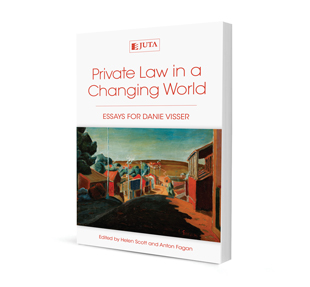Punishment, reparation and the evolution of private law: The actio iniuriarum in a changing world

Punishment, reparation and the evolution of private law: The actio iniuriarum in a changing world
Authors F du Bois
ISSN: 1996-2088
Affiliations: Professor of Law and Head of School, Leicester Law School, University of Leicester
Source: Acta Juridica, 2019, p. 229 – 282
Abstract
Tracking the long journey of the actio iniuriarum from its Roman origins via seventeenth-century Holland to South African law today, this contribution explores its transformation from a punitive action into a reparative one. In doing so, it investigates the evolution of our contemporary concept of private law: how did it come about, how did this conceptual development of the law interact with the law’s substantive content, and what does this tell us about the way in which private law relates to a changing environment? It shows how the growing differentiation of private law as a distinctive field drove forward conceptual and procedural innovations that, with increasing intensity, focused attention on the nature of the individual entitlements at play, and tended towards a bilateral form of justice in which liability is imposed only when, and only to the extent that, it is justified to hold one person liable to another. Whereas in Roman law hubristic behaviour was the core of the wrong and any impact on the victim the means bringing this about, the South African law of delict treats the impact on the victim as the gist of the wrong, and the defendant’s behaviour as the means. It is this change, along with the associated separation of criminal and civil liability, that has enabled the actio iniuriarum to survive in a fundamentally changed world.